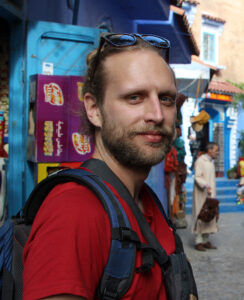From helping safari guides buy their own vehicles in Tanzania to hospitality training in Argentina, here’s how our partners give back to their communities.
We’re big believers in the idea that travel can be a force for good. We share it with our partners, and many go to tremendous lengths to give back to their local communities. To celebrate those efforts, we’ve rounded up some of our favorites working to promote travel for good. Here are their remarkable stories.
Solar Mamas, The Great Plains Foundation
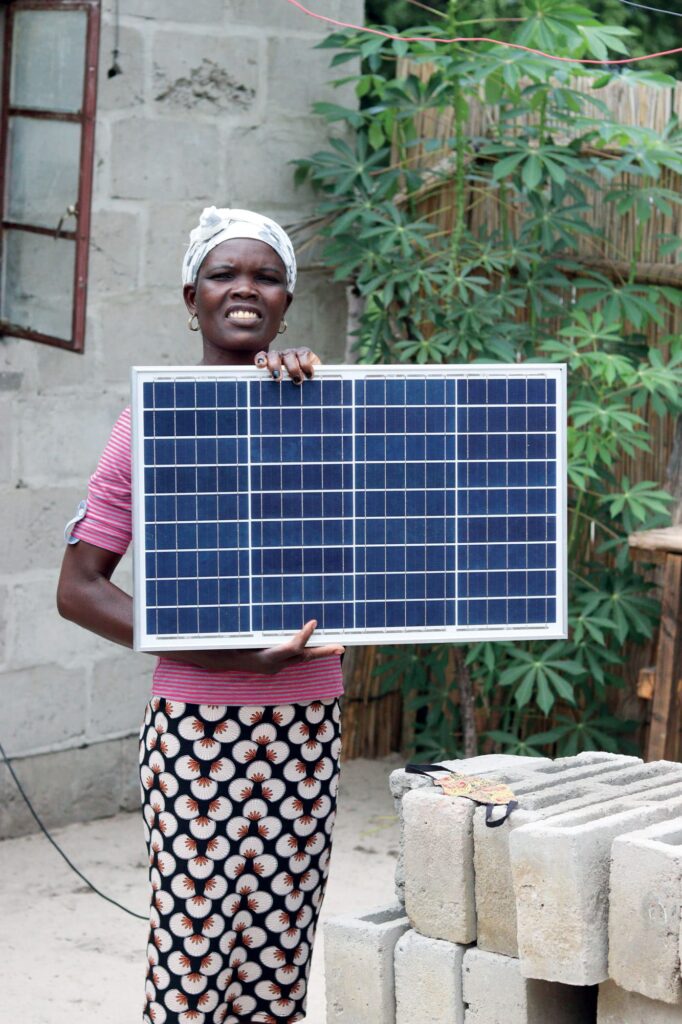
For many, switching on a light in the evening doesn’t take a second thought. But in rural Botswana, where people rely on kerosene lamps for light and roofs are made of thatch, it’s a serious fire risk. To combat this, Great Plains Conservation devised a simple way to bring light to rural communities: light jars. Although the project began as a way to reduce the risk of fire, another side-effect soon emerged: local teachers began to notice that students were performing better in school because they were able to study at night.
Seeing this, Great Plains decided to take things to the next level. In 2019, the Great Plains Foundation sponsored eight women to complete Barefoot College’s Solar Mamas project, sending them on a life-changing to India, where they learned how to install and maintain solar energy panels in their homes.
Four years on, its impact has been profoundly felt. Kereditse from Beetsha village says her children can now study after dark. Oleogeng from Gunotsoga village says the light keeps large game away at night. Many women feel safer; the eight Solar Mamas now earn extra income by installing solar panels for community members, who then pay rent on them.
The project continues flourishing, with 200 new household solar systems installed in 2023, totaling 500 across Botswana. The Great Plains Foundation remains involved in purchasing the new panels, which the Solar Mamas then fit and maintain on behalf of the community.
Sarah Boeckmann, director of the Great Plains Foundation, says that the project has been so well received that there are plans to spread this knowledge to other communities and countries. “The idea is that these ladies could train ladies and other communities within Botswana and then expand it into Zimbabwe.”
If you’d like to donate, you can do so through the Great Plains website.
Impact Safaris, African Bush Camps
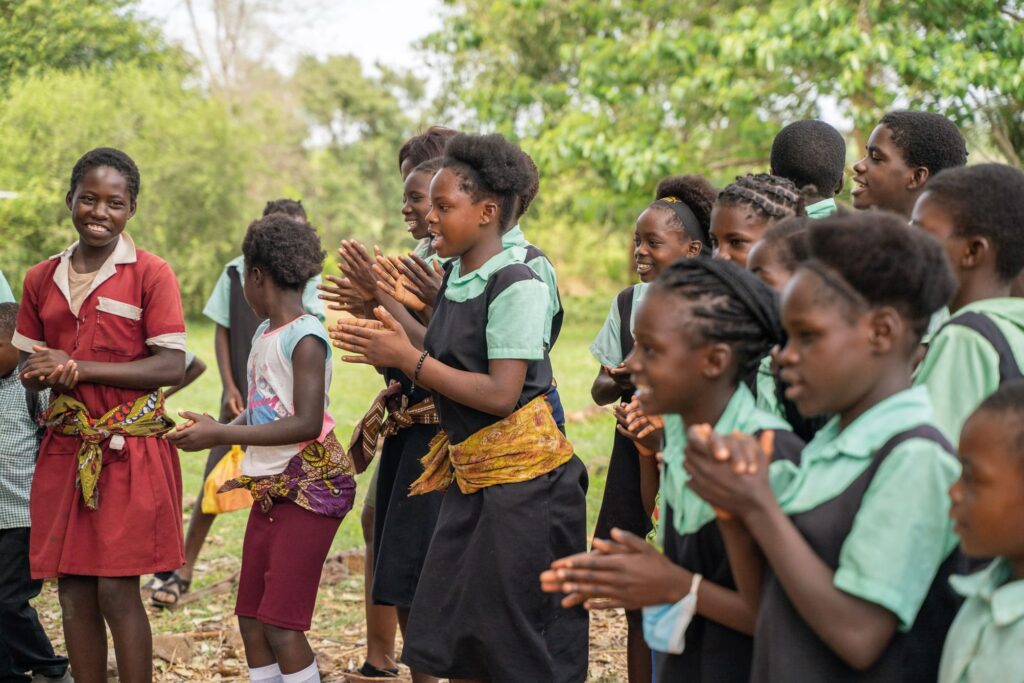
Social impact has been a big part of the African Bush Camps (ABC) ethos. So much so that when guide Beks Ndlovu founded the organization in 2006, he created its namesake foundation simultaneously.
“The aim is to improve the quality of life and achieve long-term conservation for communities that live in the areas surrounding our camps,” says Koinonia Baloyi, communications and fundraising officer at African Bush Camps Foundation (ABFC).
This year, ABC launched a new collection, Impact Safaris, combining its luxury safari experiences with the work of its local projects. The itineraries allow guests to visit projects like the Khwai preschool nutrition program in Botswana, where they can see the foundation’s work first-hand.
All visits are non-intrusive, with volunteer activities kept to areas where guests can make a small, meaningful impact—for example, serving children during lunch with a nutrition program or building a lion boma in a village. A portion of the guests’ accommodation fees is also reinvested into the programs.
From maternity clinics in Zambia and primary schools in Zimbabwe to a pioneering female safari guide training program in Botswana and Zambia, the list of the A.B.C.F.’s’ programs is long and diverse, with one key thing in common: community input.
We collaborate with the community to ensure that the solution we’re implementing is sustainable,” says Koinonia.
If you’d like to add an Impact Safari to your itinerary, our Destination Specialists will gladly help.
It’s A Girl Thing
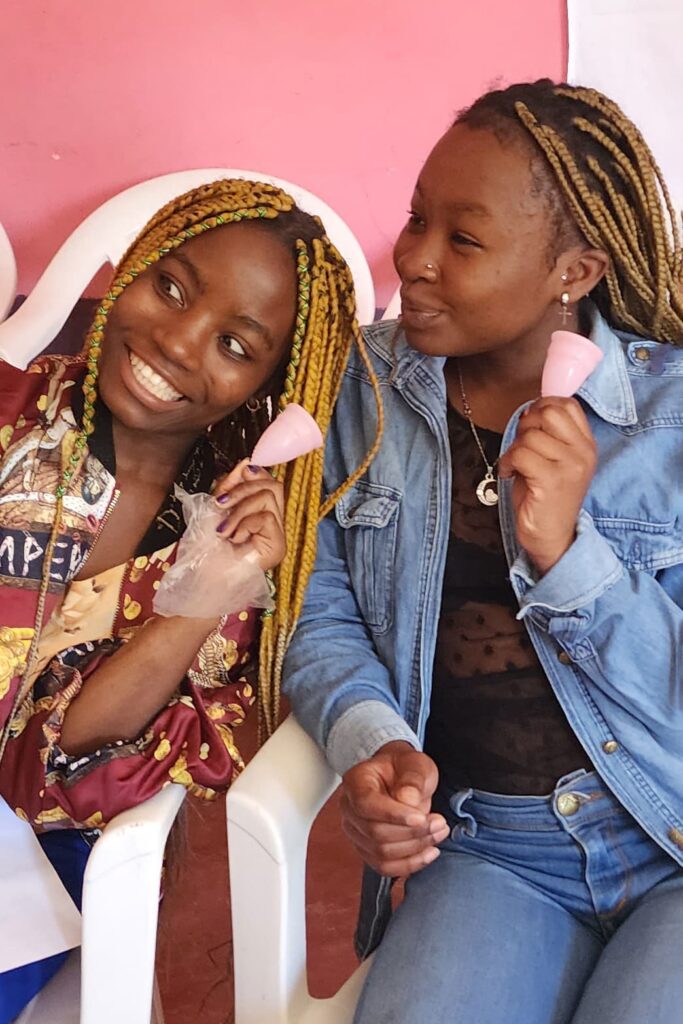
Reusable sanitary cups help young Kenyan girls and women stay in school and at work. Image courtesy of It’s A Girl Thing
For many young girls in Kenya, menstruation is a tough time of the month. It shouldn’t be, of course, but unnecessary stigma, a lack of understanding in the community, and limited access to sanitary products combine to make even simple, everyday activities challenging during menstruation. The impact on education, in particular, is enormous—It’s estimated that over a million girls miss school every year because they don’t have the necessary hygiene products.
It’s A Girl Thing is changing that: this small mother-daughter team supplies girls and women in rural Kenya with reusable sanitary cups. They’re also heavily involved in trying to break the stigma that surrounds menstruation in East Africa through instruction and counseling. As a business founded and run by a mother-daughter team, this cause is particularly important to us. We’ve donated 1,000 cups for use in East Africa and helped our clients donate too.
The project—set up by Kimberly Hickok Smith and her daughter Kimberly Layden—began in 2018, when Kimberly Layden discovered the menstrual cups while at university in the U.S. Growing up in Kenya, she saw the massive potential for the cups in East Africa. The cups are made from BPA-free, medical-grade silicone, which makes them reusable (they can last up to ten years), convenient (they can be cleaned with boiling water), and better for the environment.
The cups are also very practical. With one cup, a girl can complete her education, never having to miss a day because of her period, or spending money on sanitary products. So far, the project has distributed over 6,000 cups to school girls and women across Kenya and the U.S., helping people to stay in work as well as education.
It’s fair to say that It’s A Girl Thing has achieved a lot with limited resources. The project runs on a three-person volunteer staff based in Kenya, relying on founder funds and donations to obtain and distribute the cups. Let your destination specialist know if you’d like to contribute.
Enhancing Lives, Nomad
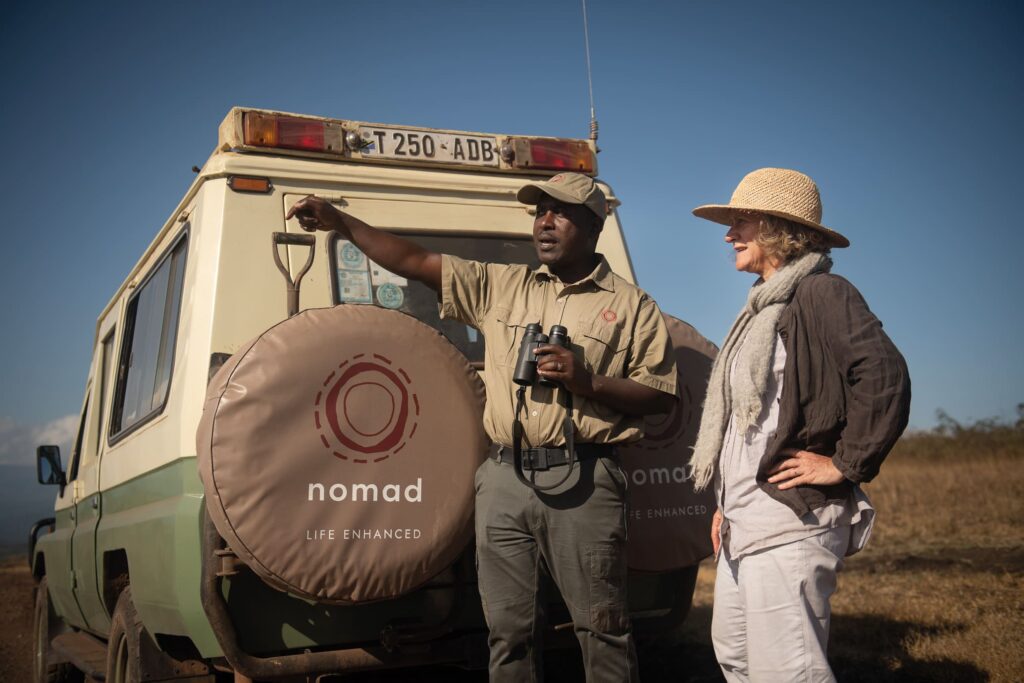
Nomad Tanzania‘s innovative vehicle microfinance scheme has been a game changer for safari guides nationwide.
A simple concept with life-changing potential, the groundbreaking scheme allows people to purchase their own safari vehicle through a no-interest loan. Often, a guide (or group of guides) has already raised some of the funds needed, with Nomad providing the balance. The guides then earn a daily rental rate for their vehicle and their guide fee.
Once the loan is repaid, guides can invest their extra income into other ventures. Many use the money to upgrade homes (or buy new ones) and pay school fees for their children. Some set up side businesses, such as small shops or tourism-focused services.
Nomad runs many social programs, but this one, in particular, holds a special place in the organization’s 25-year history. Mkombe Mniko, one of Nomad’s founding directors, pioneered the program and was the first loan recipient. He used it to build a fleet of vehicles alongside his career as a guide. His success became the blueprint for the program, which has since financed more than 70 cars.
Of course, the scheme works both ways: as well as providing guides with stability and extra income, it helps Nomad nurture the best talent from within the company. With that in mind, Nomad plans to extend it to even more camps nationwide. Nomad employs this same approach to support any local entrepreneurs that supply goods for its camps, whether that’s homemade marmalade or handcrafted bedspreads.
Fundacion Pristine, Pristine Camps
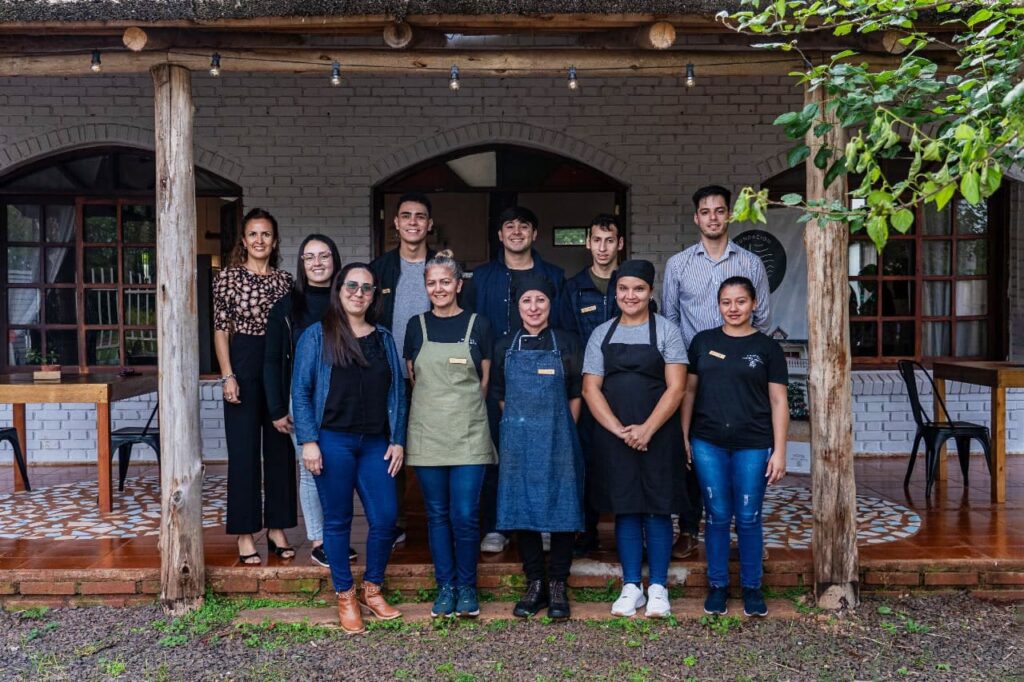
Pristine Camps’ Fundacion Pristine launched its first major project in 2022, opening the School of Hospitality and Practical Tourism in Puerto Libertad, part of Argentina‘s Misiones province.
The school aims to give locals a chance to pursue a career in tourism as an alternative career path. The first courses, which began in March 2023, focused on hospitality, training students for roles within hotels. It was such a success that there are plans to expand the program, starting with a new course teaching the practical side of hospitality and tourism.
Malvina Solis, Executive Director of Fundacion Pristine, says they expected up to 60 students when the course launched in October 2023. At the time of writing, Malvina was recruiting teachers and support staff for the course. This year, there are plans to expand the program further, touching on other areas of tourism and focusing on inclusivity—Fundacion Pristine wants to improve opportunities for women and people with learning disabilities.
Looking for more conservation-focused journeys? Check out these stories:
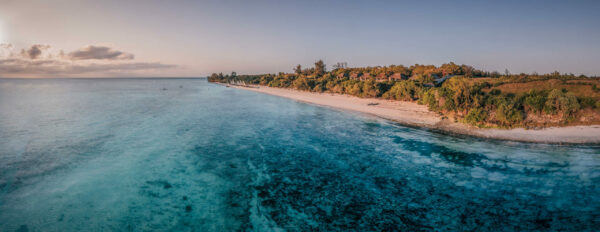
A thriving conservation economy on Pemba Island’s Manta Resort in Tanzania
The ocean covers 139 million square miles or 70 per cent of the Earth’s surface;…
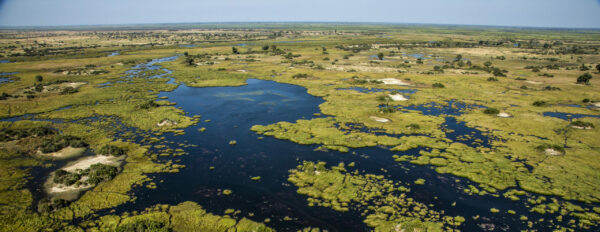
Earth Day Q&A: African Ecotourism Destinations with Dereck and Beverly Joubert of Great Plains Conservation
Introducing famed conservationists Dereck and Beverly Joubert If you’re interested…
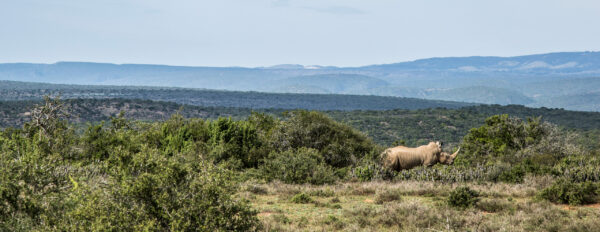
Conservation Travel in Africa: Six Destinations
Gone are the days of traveling without consideration for the impact you’ll have on…
Plan your Trip
Ready to start planning your own incredible adventure? We make the process stress-free and enjoyable.
